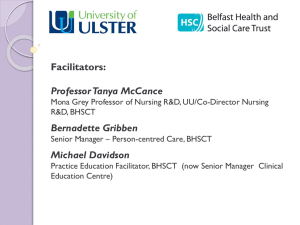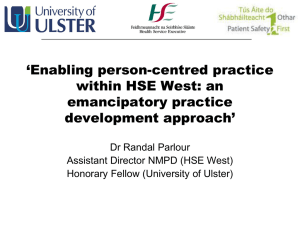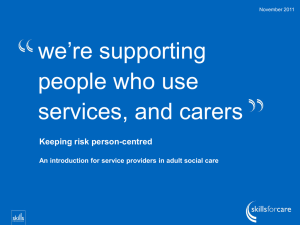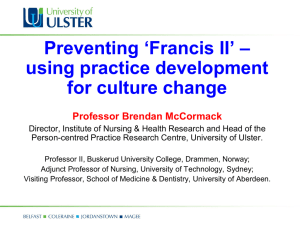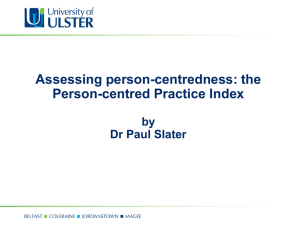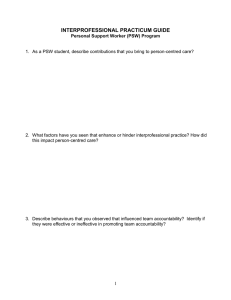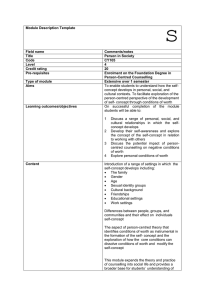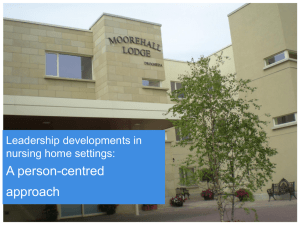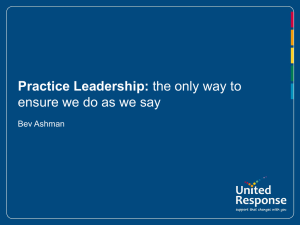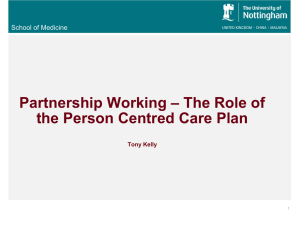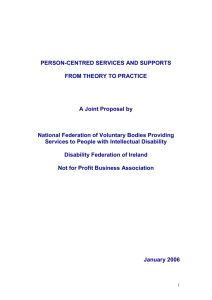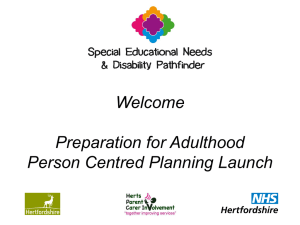Practice Development Work Strand
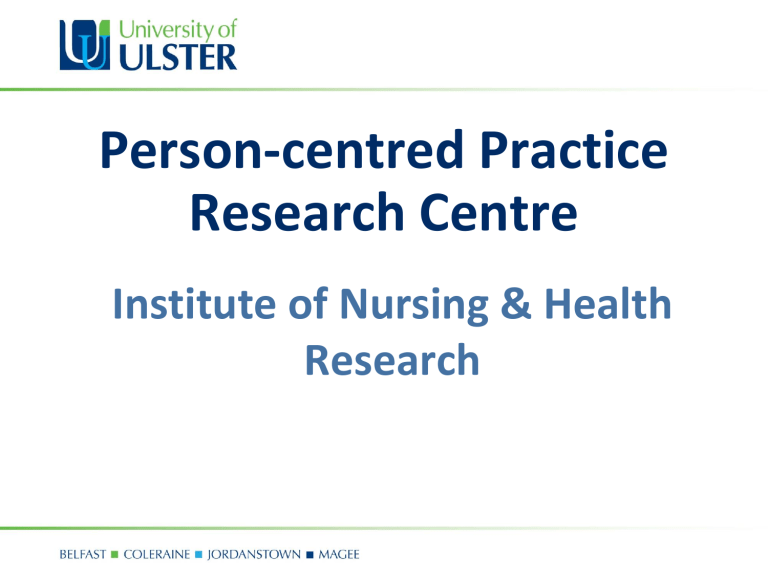
Person-centred Practice
Research Centre
Institute of Nursing & Health
Research
Person-centred Practice Research Centre: Work Strands
The Provision Of Care
To Older People
Person-centred
Practice
Development
Methodology
Development
Person-centred Practice Development
Focuses on implementation studies in collaboration with partner organisations for the purposes of promoting person-centredness in practice
Developing and testing methodological approaches in this area
What is Practice Development?
a systematic approach which aims to help practitioners and healthcare teams to look critically at their practice and identify how it can be improved.
Its purpose is to develop effective workplace cultures that have embedded within them person centred processes, systems and ways of working.
Skilled facilitators help frontline staff to get underneath the surface of daily routine, to critically reflect on the values and beliefs they hold about patient care.
Teams are challenged to consider if the behaviours, systems and processes used in practice are consistent with person centred values and what needs to be changed.
Develops evidence from practice, and implements evidence into practice.
Achieves sustainable change through its focus on continuous learning in practice .
PD is ‘micro-system’ oriented and context specific.
PD works with individuals and teams to:
• engage with a shared vision
• create links with their own aspirations
• translate complex organisational and strategic agendas into practice reality
• make sense of complex forms of evidence
• become clear about what constitutes person centred care.
• move the energy that would otherwise have been expended in conflictual agendas and resistance towards shared agendas.
• facilitate the system as a whole to re-engage with the untapped potential lying within the healthcare workforce and their patients.
Practice Development
(Garbett & McCormack, 2003)
Person-centred Nursing Framework
(McCormack & McCance 2010)
CARE
ENVIRONMENT
The context in which care is delivered
The PCN Framework
PREREQUISITES
Attributes of the nurse
CARE PROCESSES
Delivering care through a range of activities
OUTCOMES
Results of effective person-centred nursing
Using a different lens to learn from practice?
Use of the framework in practice
To promote an understanding of personcentred care
To analyse barriers to change
As an aid for reflection
To focus the implementation and evaluation of developments in practice
To inform strategy
Person-centredness and PD
“Developing person-centredness is at the heart of practice development and despite much policy and strategic rhetoric, practice development continues to be the only methodology that has the development of person-centredness as its primary purpose and which recognises that personcentredness is not developed through one-off change events.
Instead, it needs continuous reflective and critical
relationships to be developed and sustained over time.”
(McCormack 2008, p.161)
Recommendations from the Francis Report
The NHS and all who work for it must adopt and demonstrate a shared culture in which the patient is the priority in everything done. This requires:
A common set of core values and standards shared throughout the system;
Leadership at all levels from ward to the top of the Department of
Health, committed to and capable of
involving all staff with those values and standards;
A system which recognises and applies the values of transparency, honesty and candour;
Freely available, useful, reliable and full information on attainment of the values and standards;
A tool or methodology such as a cultural barometer to measure the cultural health of all parts of the system.
Project Examples
‘Paediatric International Nursing Study
(PINS) - embedding Key Performance
Indicators into Paediatric Practice’
‘Developing Person-centred Cultures in
BHSCT’
Rose Kelly, Manager, Acute
Paediatrics & Neonatology, SET
Tanya McCance and Participants from the Belfast Trust Personcentred Practice Programme
'Caring for the carers - working in partnership to achieve person centred care'.
Annemarie Tunney, NHSCT
Person Centred Practice in Emergency Care
– what are the challenges?
Donna McConnell and Vidar
Melby.
